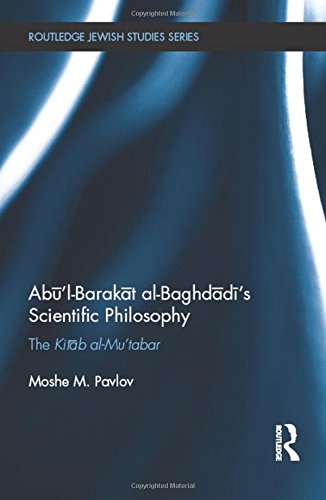

Most ebook files are in PDF format, so you can easily read them using various software such as Foxit Reader or directly on the Google Chrome browser.
Some ebook files are released by publishers in other formats such as .awz, .mobi, .epub, .fb2, etc. You may need to install specific software to read these formats on mobile/PC, such as Calibre.
Please read the tutorial at this link: https://ebookbell.com/faq
We offer FREE conversion to the popular formats you request; however, this may take some time. Therefore, right after payment, please email us, and we will try to provide the service as quickly as possible.
For some exceptional file formats or broken links (if any), please refrain from opening any disputes. Instead, email us first, and we will try to assist within a maximum of 6 hours.
EbookBell Team

4.3
88 reviewsAbū’l-Barakāt is often considered one of the most comprehensive philosophers of the Arabic-Jewish milieu in the medieval age. His extensive and unique philosophical theories, especially his theories in the particular sciences, were seen as a major challenge for the traditional conceptions of the Aristotelian school of thought during and after this period.
‘Abū’l-Barakāt al-Baghdādī’s Scientific Philosophy’ explores the core material of Abū’l-Barakāt’s scientific studies, found in his magnum opus the Kitāb al-Mu‘tabar. The book then locates these scientific theories within Abū’l-Barakāt’s philosophy more widely. Whilst providing a comprehensive critique of ancient philosophy, including the work of Aristotle, certain affinities between Abū’l-Barakāt’s work and that of more modern scientific conceptions are also examined.
Containing vast amounts of previously untranslated text, ‘Abū’l-Barakāt al-Baghdādī’s Scientific Philosophy’ sheds new light on the philosopher’s scientific theories, particularly with regards to his logical conceptions. For this reason, the book will be a valuable resource for students and scholars of Jewish and Islamic Philosophy, whilst the scientific material will appeal to those studying the history of science.